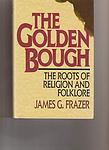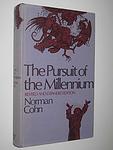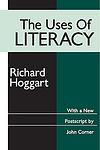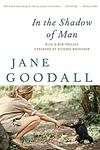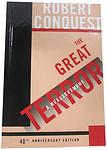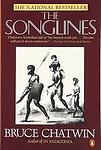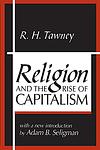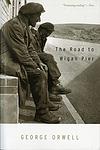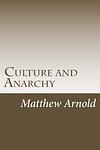The Greatest British "Nonfiction, Social sciences" Books of All Time
Click to learn how this list is calculated.
This list represents a comprehensive and trusted collection of the greatest books. Developed through a specialized algorithm, it brings together 305 'best of' book lists to form a definitive guide to the world's most acclaimed books. For those interested in how these books are chosen, additional details can be found on the rankings page.
Genres
Social sciences is a broad category of books that encompasses the study of human society and social relationships. This includes disciplines such as sociology, psychology, anthropology, economics, political science, and history. Social science books aim to understand and explain human behavior, social structures, and cultural norms. They explore topics such as social inequality, power dynamics, social change, and the impact of technology on society. Social science books provide valuable insights into the complexities of human interactions and offer a deeper understanding of the world we live in.
Countries
Date Range
Reading Statistics
Click the button below to see how many of these books you've read!
Download
If you're interested in downloading this list as a CSV file for use in a spreadsheet application, you can easily do so by clicking the button below. Please note that to ensure a manageable file size and faster download, the CSV will include details for only the first 500 books.
Download-
1. A Vindication of the Rights of Woman by Mary Wollstonecraft
This influential work from the late 18th century argues passionately for the education and societal recognition of women. The author asserts that women are not naturally inferior to men, but appear to be only because they lack education. She suggests that both men and women should be treated as rational beings and imagines a social order founded on reason. The book is considered one of the earliest works of feminist philosophy.
The 317th Greatest Book of All Time -
2. On Liberty by John Stuart Mill
This influential philosophical work explores the concept of personal freedom and societal limits, arguing that individuals should have the right to act as they want, provided they do not harm others. The book elaborates on the nature and limits of the power that can be legitimately exercised by society over the individual, and champions individuality and nonconformity. It also discusses freedom of speech, asserting that all opinions should be openly expressed to prevent any single viewpoint from becoming dogma.
The 513th Greatest Book of All Time -
3. The Making of the English Working Class by E. P. Thompson
This book is a comprehensive historical analysis of the formation of the English working class from the late 18th century to the mid-19th century. The author meticulously examines various aspects of society including the Industrial Revolution, the rise of Methodism, and political movements, arguing that the working class was not a byproduct of economic factors alone, but was actively self-formed through struggles over issues like workers' rights and political representation. The book is widely regarded as a seminal text in social history due to its focus on the experiences and agency of ordinary people.
The 551st Greatest Book of All Time -
4. Common Sense by Thomas Paine
This influential pamphlet, published in 1776, played a crucial role in persuading the colonists of the Thirteen Colonies to declare independence from Britain. It argues for the democratic system of government, criticizes monarchy and hereditary succession, and advocates for the inherent rights and freedoms of individuals. The text uses plain language to make complex political ideas accessible to the average citizen, promoting the idea that the colonies have a right to be an independent nation.
The 828th Greatest Book of All Time -
5. The Golden Bough by James George Frazer
"The Golden Bough" is a comprehensive study on mythology and religion, exploring the common themes found in different cultures around the world. The author uses a wide range of sources to argue that human belief progressed through three stages: primitive magic, replaced by religion, which in turn was replaced by science. The book delves into various rituals and customs, including the concept of the dying god in mythology and the role of fertility rites in agriculture. The author's theories have had a profound influence on both literature and anthropology.
The 830th Greatest Book of All Time -
6. The Open Society by Karl Popper
This book is a critique of totalitarianism and a defense of liberal democracy. The author argues against the concept of a perfect, immutable society, instead advocating for an "open society" that allows for constant change and improvement. He criticizes theories of historical determinism and the notion of "the collective", emphasizing the importance of individual freedom and human rights. The book also examines and challenges the philosophies of Plato, Hegel, and Marx, linking their ideas to the rise of fascism and communism in the 20th century.
The 857th Greatest Book of All Time -
7. Down and Out in Paris and London by George Orwell
This book is a semi-autobiographical work that explores the harsh realities of poverty in two of Europe's most renowned cities. The protagonist, a struggling writer, first experiences the squalor, hardship, and vagabond lifestyle of Paris, where he works menial jobs and often goes hungry. The narrative then shifts to London, where the protagonist lives as a tramp, navigating the oppressive rules of homeless shelters and the stigma of poverty. The book is a deeply empathetic and insightful exploration of the often invisible world of the impoverished.
The 941st Greatest Book of All Time -
8. A Study of History by Arnold J. Toynbee
"A Study of History" is an extensive 12-volume universal history, exploring the development and decay of world civilizations throughout the ages. The author proposes that civilizations rise and fall based on their responses to challenges, both physical and social. The book also puts forth the idea that religions play a crucial role in the rise of civilizations and that the failure of a civilization's creative power can lead to its decline. The work is renowned for its scholarly depth and its controversial theories about the cyclical nature of history.
The 983rd Greatest Book of All Time -
9. De Profundis by Oscar Wilde
"De Profundis" is a lengthy letter written by a man during his imprisonment for gross indecency, reflecting on his past life and experiences. The letter is addressed to his former lover, and through it, he expresses his feelings of regret, despair, and hope. The man discusses his spiritual journey during incarceration, his newfound understanding of suffering, and his changing views on art and morality. The work is a profound exploration of love, forgiveness, redemption, and the human spirit's resilience.
The 1038th Greatest Book of All Time -
10. Two Treatises of Government by John Locke
"Two Treatises of Government" is a seminal work in political philosophy, which outlines the author's theories on social contract and natural rights. The first treatise refutes the divine rights of kings, arguing that political power does not come from God but from the people. The second treatise introduces the idea of a government that exists to protect the rights of its citizens, particularly life, liberty, and property. The author posits that if a government fails to protect these rights, the people have the right to overthrow it. This work greatly influenced the development of democratic thought and the structure of modern democratic governments.
The 1145th Greatest Book of All Time -
11. The Pursuit of the Millennium by Norman Cohn
This book provides a comprehensive historical analysis of millenarian movements in Europe from the 11th to 16th centuries. It delves into the social and psychological factors that led to the rise of these movements, which were characterized by the belief in an impending apocalypse followed by a new, heavenly order on earth. The author examines a number of these movements in detail, including the Crusades, the flagellant movements, and the Anabaptist kingdom of Münster, and argues that these millenarian ideologies were often used to justify violence and social revolution.
The 1461st Greatest Book of All Time -
12. Novum Organum by Francis Bacon
This book is a philosophical work that presents a new method of acquiring knowledge and understanding the natural world, rejecting the traditional methods of the time. The author argues that human understanding is hindered by certain 'idols' or false notions, and proposes an inductive, experimental method, known as the 'Baconian method', which involves gathering data, making observations, and conducting experiments to understand the world. This method is seen as a precursor to the modern scientific method.
The 2090th Greatest Book of All Time -
13. The Uses of Literacy by Richard Hoggart
"The Uses of Literacy" is a sociological study that explores the impact of mass media and popular culture on traditional working-class values and communities in Britain during the mid-20th century. The author combines personal memoir with scholarly analysis to examine how the spread of American consumer culture and the rise of mass media have influenced British society, especially among the working class. The book serves as a critique of the commercialization of culture and the erosion of authentic, local cultures and traditions.
The 2161st Greatest Book of All Time -
14. In the Shadow of Man by Jane Goodall
This book provides a fascinating and detailed account of the author's groundbreaking research on wild chimpanzees in Africa. The author offers insights into the complex social structure, behavior, and personalities of these primates, challenging the then-prevailing scientific belief that only humans were capable of having personalities and emotions. Through her studies, the author revolutionized our understanding of our closest relatives in the animal kingdom, and she also discusses the threats to their survival and the many challenges they face due to human activities.
The 2315th Greatest Book of All Time -
15. The Great Terror by Robert Conquest
"The Great Terror" is a comprehensive analysis of Joseph Stalin's purges in the Soviet Union during the 1930s. The book delves into the brutal and systematic elimination of potential political rivals, intellectuals, and ordinary citizens, who were falsely accused of espionage, sabotage, or being counter-revolutionary. It provides a detailed account of the show trials, executions, and forced labor camps, shedding light on one of the darkest periods in Soviet history.
The 2599th Greatest Book of All Time -
16. The Songlines by Bruce Chatwin
The book is a semi-fictional account of the author's journey through the Australian Outback, where he explores the culture of the Aboriginal people, particularly their concept of 'Songlines' - invisible pathways that crisscross Australia, ancient tracks connecting communities and following the journeys of ancestral spirits. As he travels, he delves into the nomadic way of life, the idea of walking as a spiritual practice, and the deep connection between the Aboriginal people and the land. The narrative is interspersed with philosophical discussions on topics like nomadism, anthropology, history, travel, and the nature of human restlessness.
The 3171st Greatest Book of All Time -
17. Religion And The Rise Of Capitalism by R. H. Tawney
"Religion and the Rise of Capitalism" is a comprehensive exploration of the historical relationship between the development of capitalism and the evolution of religious thought, particularly Protestant Christianity. The author delves into the moral and ethical dimensions of capitalism, arguing that its growth was significantly influenced by certain religious ideas. The book also discusses how religious beliefs have shaped economic systems and societal norms, and how these, in turn, have impacted religion.
The 3439th Greatest Book of All Time -
18. The Strange Death of Liberal England by George Dangerfield
"The Strange Death of Liberal England" is a historical analysis that explores the decline of the Liberal Party and the rise of the Labour Party in early 20th century England. The book delves into the socio-political factors that led to this shift, including the suffragette movement, the Irish Nationalist movement, and the labour unrest. It provides a detailed account of the political landscape of the time, highlighting the internal conflicts and external pressures that brought about the end of the Liberal era.
The 3454th Greatest Book of All Time -
19. The Road to Wigan Pier by George Orwell
This book is a sociological exploration of the bleak living conditions among the working class in Lancashire and Yorkshire, England, in the 1930s. The author, who lived among the people, vividly describes the hardships of the poor and criticizes the systems that make them so. The latter part of the book presents a discussion on class and possible socialist solutions to the issues presented in the first part. It's a powerful critique of British society at the time and a call for better conditions for the working class.
The 3464th Greatest Book of All Time -
20. The Subjection of Women by John Stuart Mill
"The Subjection of Women" is a seminal work that advocates for gender equality and women's rights. The book argues against the social and legal subordination of women to men, challenging the widely held belief that it's natural, inevitable, and beneficial. The author posits that women should be given the same rights as men, including voting rights and the opportunity to pursue any profession. He further argues that society would greatly benefit from the intellectual contributions of women if they were allowed to participate fully in all areas of public life.
The 4157th Greatest Book of All Time -
21. Love's Work by Gillian Rose
"Love's Work" is a deeply personal memoir that explores the life of a renowned philosopher as she grapples with her terminal cancer diagnosis. The book is a profound exploration of love, suffering, and the human condition, as the author reflects on her personal relationships, her career, and her Jewish faith. It is a philosophical and emotional journey that challenges readers to confront their own mortality and the complexities of human life.
The 4380th Greatest Book of All Time -
22. Staying Power: The History of Black People in Britain by Peter Fryer
"Staying Power: The History of Black People in Britain" is a comprehensive account of the African diaspora in Britain from Roman times to the present day. The book explores the various contributions of Black people to the British society, culture, and economy, challenging the traditional narrative that Black presence in Britain began with the Windrush generation. The author delves into the struggles, achievements, and resilience of Black people in Britain, offering a nuanced and detailed historical perspective.
The 4583rd Greatest Book of All Time -
23. Nothing to be Frightened Of by Julian Barnes
This book is a memoir that explores the author's fear of death and his quest for meaning in life. It blends elements of autobiography, philosophy, and literary criticism, drawing on the author's personal experiences, his relationships with his family, and his thoughts on writers and philosophers who have influenced him. The narrative is marked by the author's wit, humor, and keen observations, offering a thoughtful and engaging exploration of mortality and the human condition.
The 5514th Greatest Book of All Time -
24. London Labour and the London Poor by Henry Mayhew
This book provides a comprehensive look into the lives of the working poor in 19th century London. The author offers an in-depth analysis of the socio-economic conditions of the time, detailing the struggles and hardships faced by the city's lower classes. The book includes interviews with a wide range of people, from street-sellers and chimney sweeps to beggars and thieves, offering a vivid and often grim picture of Victorian London. It is considered an important social document for its first-hand account of the realities of urban poverty.
The 5751st Greatest Book of All Time -
25. Culture and Anarchy by Matthew Arnold
This book is a series of essays that critically examines the culture and society of 19th-century England. The author argues that the pursuit of perfection and an ideal state of culture is the remedy to the social issues and disorder of the time. He presents two opposing forces, "culture" which seeks the holistic development of society, and "anarchy" which represents the chaos and disorder resulting from a lack of culture. Throughout the text, he explores the tension between these two forces, ultimately advocating for the importance of education and the pursuit of perfection in achieving a harmonious society.
The 5751st Greatest Book of All Time
Reading Statistics
Click the button below to see how many of these books you've read!
Download
If you're interested in downloading this list as a CSV file for use in a spreadsheet application, you can easily do so by clicking the button below. Please note that to ensure a manageable file size and faster download, the CSV will include details for only the first 500 books.
Download



